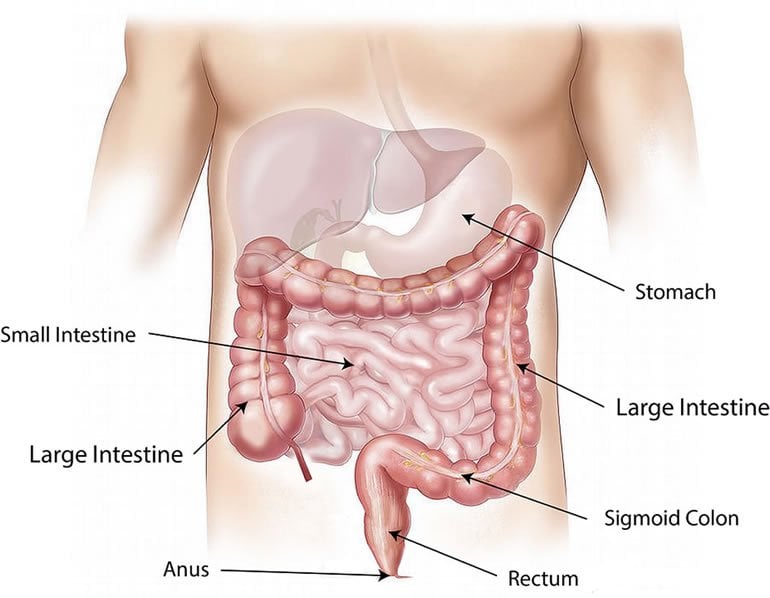Summary: Study provides evidence of gut dysbiosis associated with Huntington’s disease. Some of the gut measures were associated with disease symptoms such as movement and cognitive impairment. The findings could provide a new avenue of treatment for the neurodegenerative disease.
Source: Monash University
A world first clinical study of the gut microbiome in people with Huntington’s disease (HD) has found that it is not just a disease of the brain, but also of the body.
The study, led by Monash University’s Turner Institute for Brain and Mental Health, with collaboration from the Florey Institute for Neurosciences found evidence of gut dysbiosis (altered bacteria in the gastrointestinal tract) in people with HD, with some of the gut measures associated with disease symptoms, such as impaired movements and thinking.
The findings, published in Brain Communications, raise interesting questions regarding the role of the gut in Huntington’s disease, and its potential as a target for future therapeutic intervention, or for tracking disease progression.
The lead researchers, Neuropsychology Doctoral Candidate Cory Wasser and Professor Julie Stout, Director of Monash University’s Clinical Cognitive Neuroscience Laboratory, used fecal samples to investigate whether the gut microbiome in people with HD differs to those without the HD gene.
The study included 42 participants with the HD gene, including 19 people with HD, 23 people with the HD gene but not yet showing HD symptoms, and 36 healthy participants who did not carry the gene mutation.
According to Professor Stout, “It is also possible that the changes in these trillions of gut bacteria—which outnumber the trillion or so human cells in each person’s body—which are known to ‘talk to the brain’, could also affect symptoms of HD such as depression and dementia.”

In people with HD, the researchers found major shifts at the level of bacterial families, altering the potential of the gut for sending signals to the brain and other organs.
These findings may also mean that changing gut bacteria may be a cause or precursor to some of the more debilitating symptoms associated with HD, according to the researchers.
“These results raise the tantalizing proposition of whether the gut may be a potential target for future therapeutic intervention to improve outcomes in Huntington’s disease and other neurodegenerative diseases,” Professor Stout said.
Huntington’s disease is a debilitating genetic neurological condition which gradually affects a person’s movements, emotional and cognitive function. Each offspring of a parent with the HD gene has a 50 per cent chance of inheriting the genetic mutation causing the disease.
There is no cure and once symptoms appear, life expectancy reduces by 10-25 years, with latter stages of the disease severely impacting quality of life.
In people with HD, motor symptoms become debilitating, cognitive decline eventually progresses to dementia, and depression is estimated to be five to 10 times more common in HD than in the general population.
About this Huntington’s disease research article
Source:
Monash University
Contacts:
Antoine Adamantidis – Monash University
Image Source:
The image is in the public domain..
Original Research: Open access
“Gut dysbiosis in Huntington’s disease: associations between gut microbiota, cognitive performance and clinical outcomes” by Cory I Wasser et al. Brain Communications.
Abstract
Gut dysbiosis in Huntington’s disease: associations between gut microbiota, cognitive performance and clinical outcomes
Huntington’s disease is characterised by a triad of motor, cognitive, and psychiatric impairments, as well as unintended weight loss. Although much of the research has focused on cognitive, motor and psychiatric symptoms, the extent of peripheral pathology and the relationship between these factors, and the core symptoms of Huntington’s disease, are relatively unknown. Gut microbiota are key modulators of communication between the brain and gut, and alterations in microbiota composition (dysbiosis) can negatively affect cognition, behaviour and affective function, and may be implicated in disease progression. Furthermore, gut dysbiosis was recently reported in Huntington’s disease transgenic mice. Our main objective was to characterise the gut microbiome in people with Huntington’s disease and determine whether the composition of gut microbiota are significantly related to clinical indicators of disease progression. We compared 42 Huntington’s disease gene expansion carriers (HDGECs), including 19 people who were diagnosed with Huntington’s disease (Total Functional Capacity > 6) and 23 in the premanifest stage, with 36 age and gender-matched healthy controls. Participants were characterised clinically using a battery of cognitive tests and using results from 16S V3-V4 rRNA sequencing of faecal samples to characterise the gut microbiome. For gut microbiome measures, we found significant differences in the microbial communities (beta diversity) based on unweighted UniFrac distance (p = 0.001), as well as significantly lower alpha diversity (species richness and evenness) between our combined HDGEC group and healthy controls (p = 0.001). We also found major shifts in the microbial community structure at Phylum and Family levels, and identified functional pathways and enzymes affected in our HDGEC group. Within the HDGEC group, we also discovered associations between gut bacteria, cognitive performance and clinical outcomes. Overall, our findings suggest an altered gut microbiome in HDGECs. These results highlight the importance of gut biomarkers and raise interesting questions regarding the role of the gut in Huntington’s disease, and whether it may be a potential target for future therapeutic intervention.






